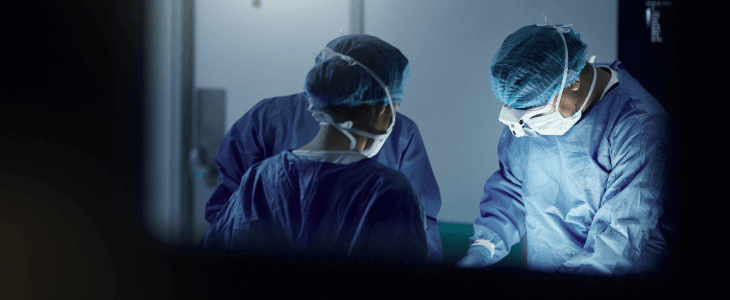Medical patients count on their doctors to timely and accurately diagnose their illnesses so they can receive the treatments they need. What happens when the diagnosis is delayed? When is this evidence of medical malpractice?
Knowing the legal standard of malpractice and how it applies to delayed diagnoses can give you an understanding of your legal rights. If you suffered due to medical mistakes, it’s time to speak with the New York medical malpractice attorneys of Carden Dotzler Hammond, PLLC.
What is Medical Malpractice?
Many patients believe that any mistake that their doctor, hospital, or other healthcare professional or establishment makes is proof of malpractice. In reality, however, these individuals are not required to be perfect. An injured patient must prove more than an error.
Specifically, the victim has to show that the medical professional failed to adhere to a certain standard of care. In other words, they have to prove negligence. All medical procedures have some degree of risk, and imperfect humans – even with the best intentions – can make mistakes.
In New York, a victim of a medical error must prove four specific elements to establish malpractice:
- Duty of care: First, the victim must show that there was a doctor-patient relationship obligating the doctor to provide care. This is fairly easy to establish based on evidence like medical records.
- Breach: Next, and more challenging, the patient has to prove that the doctor negligently fell short of the accepted standard of care. In other words, show that the doctor breached the duty of care. Testimony from a medical expert witness will help prove this.
- Causation: The breach must be the proximate cause of the patient’s injury. Expert witness testimony can also establish this crucial causal link between the negligent breach and the victim’s injuries.
- Damages: Finally, the victim must demonstrate the nature and extent of their damages. These may include medical bills to correct the error, lost time from work due to injury, pain and suffering, and more.
How Does a Delayed Diagnosis Measure Up?
A delayed diagnosis, like any other medical mistake, is not itself proof of malpractice. The most skilled and experienced doctors, using the latest in medical technology, can fail to diagnose a disease or condition on time. The question is whether the delay was reasonable in light of the circumstances.
In order to establish malpractice in New York, the patient must show that another doctor, of the same or similar skill and experience, and under the same or similar conditions, would not have been delayed in diagnosing the condition in question. For instance, did the doctor:
- Use established medical techniques and procedures for evaluating the patient?
- Correctly list diagnoses based on what was most probable?
- Unreasonably exclude or overlook any symptoms or other evidence from consideration?
- Order tests to determine which diagnosis was likely correct?
- Consult other specialists, as necessary, to diagnose the patient?
- Unreasonably delay making their conclusion and informing the patient?
You should ask a knowledgeable New York attorney if the answers to these and other questions will give you grounds to file a malpractice lawsuit. Your lawyer will review the evidence and advise you accordingly.
Also, it may not have been your doctor who committed the malpractice. For instance, your doctor might have timely ordered tests, but the laboratory was unreasonably delayed in administering them or reading the results. We can help determine who may be liable.
The Value of Experienced New York Legal Counsel
In light of the complexities of medical malpractice cases, you can’t afford to go without skilled legal counsel in your corner. Our dedicated attorneys are experienced with delayed diagnosis claims, and we understand how to prove malpractice.
We also know how to determine the value of the patient’s damages, including reasonably estimated future losses the patient is likely to incur. Through our work with expert witnesses we can build a compelling case for the compensation that you deserve.
Were you or a loved one injured because of a delayed diagnosis? Would you like to better understand your legal options? Get in touch with CDH Law today by giving us a call or completing our online contact form.








